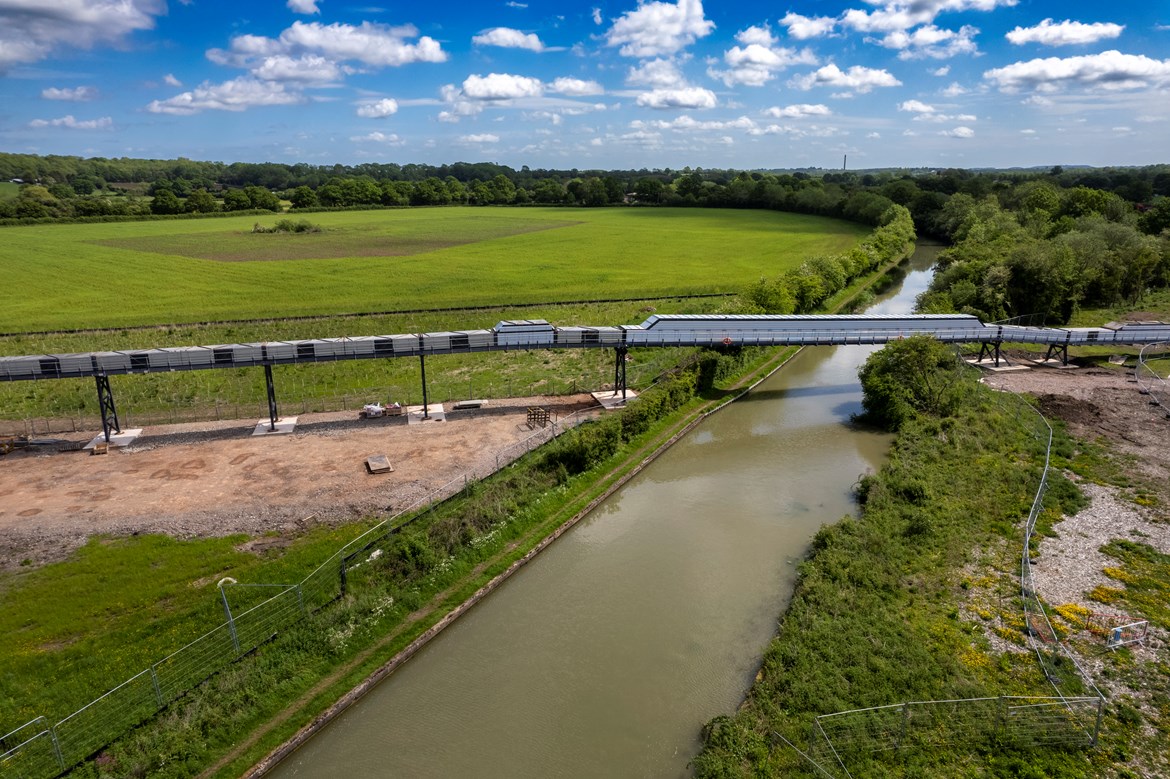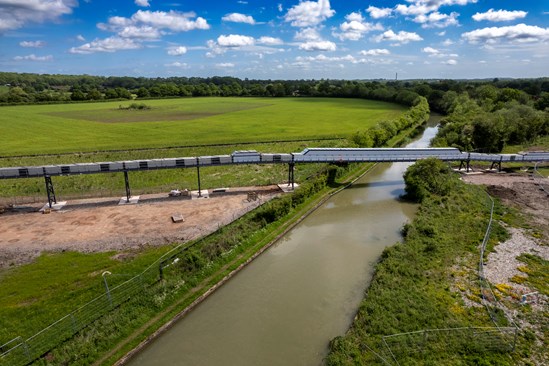A new conveyor has started operating on HS2’s Long Itchington Wood Tunnel site in Warwickshire to take over 750,000 tonnes of excavated material over the Grand Union Canal where it will be reused in other locations of the route.
HS2’s civils contractor for the Midlands, Balfour Beatty Vinci (BBV) has built the 254 metres long machine to move material currently being excavated from Long Itchington Wood Tunnel and a railway cutting in the same location.
It is expected that the new shortcut will remove the equivalent of around 30,000 HGVs from local roads, reducing impacts on the local community and cutting carbon. The conveyor will operate until early 2023, before it is dismantled and rebuilt at Water Orton as part of a 1,200m long conveyor which will remove hundreds more lorries from the roads every day.
Alan Payne, Senior Project Manager at HS2 Ltd said:
“We’re working closely with our supply chain to reduce carbon right across the project and find construction solutions to minimise disruption around our work sites. It’s initiatives like this that will help us achieve our ambitious target of being net zero carbon as a project from 2035, helping to put HS2 at the centre of Britain’s sustainable transport network.”
Ed Morgan, Senior Plant and Equipment Manager for Balfour Beatty VINCI (BBV) said:
“As we build Britain’s new railway, we have big ambitions to reduce the impact on local communities wherever possible and to reduce carbon across the project. Our new conveyor does both. We can now move material from our tunnel boring activity and reuse it at other locations along the route. This will reduce construction traffic and ultimately, help us to contribute to HS2’s carbon targets.
“We’ll continue to embrace innovation and adapt our construction methods to leave a lasting positive legacy on the areas we operate in.”
Excavation of the twin bore tunnel will produce around 500,000 tonnes of mudstone and soil, which is processed at an on-site slurry treatment plant and separated out before being transported by the conveyer to be used to build embankments along the route of HS2. An additional 250,000 tonnes of material will come from excavations for a railway cutting, which will also be transported by the conveyor.
In December 2021, HS2 CEO Mark Thurston launched the Tunnel Boring Machine ‘Dorothy’ – named after the first British woman to win the Nobel Prize in Chemistry - on her one mile journey underneath the Warwickshire countryside. The tunnel will preserve the Long Itchington Wood above the site, which is classified as a Site of Special Scientific Interest (SSSI). Dorothy is expected to complete her first bore later in the summer, and this will be the first tunnel breakthrough on the HS2 project.
ENDS

